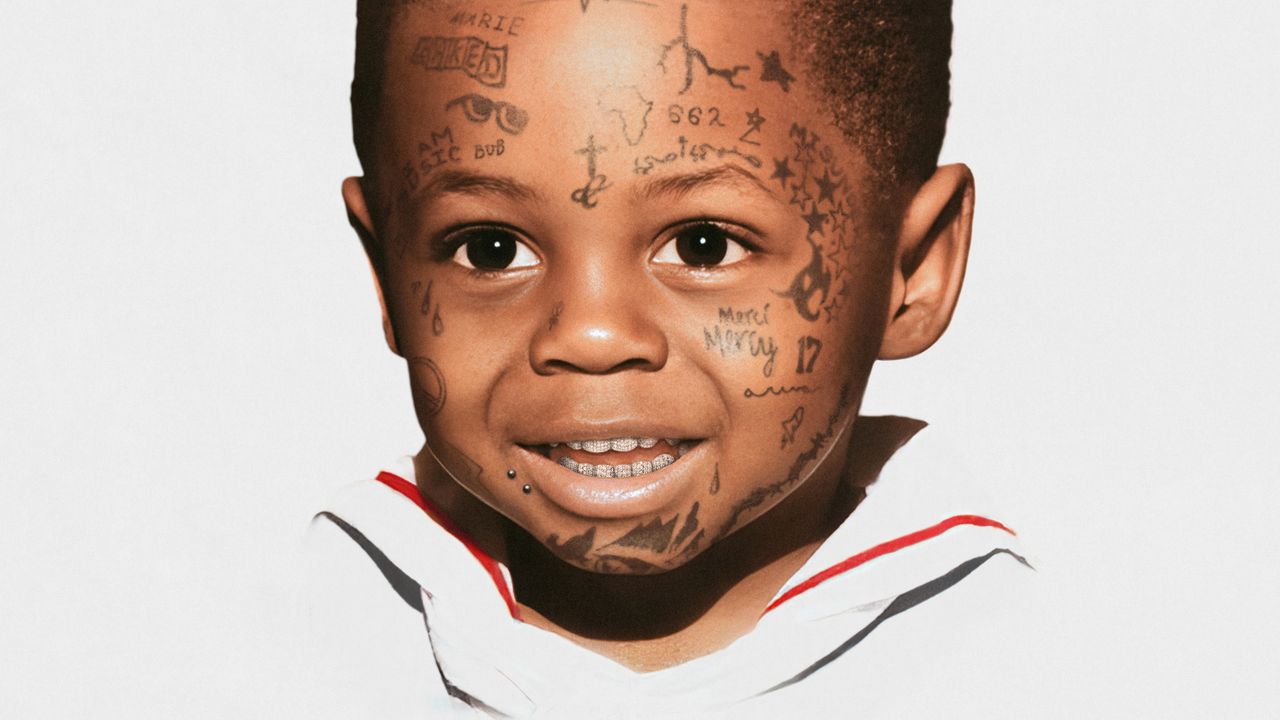The first problem is that there aren’t any good songs. Tha Carter VI, Lil Wayne’s 14th studio album—but, given its title, one of the few meant to be instantly canonized—is a blockbuster by design and by committee: No fewer than 28 producers are credited; Bono sings, Lin-Manuel Miranda produces one song. In 19 tracks, there are vanishingly few moments that might prove that this man, still only 42 years old, was once the best rapper on the planet. Songs feel simultaneously tossed off and over-considered; there are perhaps two passages across C6’s 67 minutes that scan as anything other than the product of a hyper-competent professional in need of serious creative guidance. It would be a disaster if any of it mattered.
The first three Carter installments, released between 2004 and 2008, chart Wayne’s rise from “youngest Hot Boy” to the creative and commercial epicenter of hip-hop, his gravity such that one-off experiments would spawn a decade’s worth of imitators. The fourth, from 2011, sold phenomenally well but came during a sharp artistic downturn following his 2010 incarceration; the fifth, which was finally released in 2018 after years of litigation and leaks, is jagged and messy, but frequently ingenious and idiosyncratic, a master artist bumping up against industry mechanics and his diminished place in culture. Carter VI comes with no such complications. It is frictionless in every sense: released without a hiccup, seemingly written and recorded in a very expensive vacuum.
Which brings us to the album’s second fundamental problem. On C5, entire songs would be built around a single vocal idea—for example, the clipped, see-saw cadence he applied to the “Special Delivery” flip on “Uproar”—in a way that suggested poise, premeditation, control. Here, nearly every verse defaults to the same dense, superficially complex style: a thick block of syllables cut into words and lines as if it were a jigsaw puzzle. Writing this way can be time-intensive, but requires (or at least reveals) little in the way of actual inspiration; at a certain point, it’s just math.
In this way, the useful referent for late-period Wayne is late-period Eminem. Earlier in their careers, both rappers were able to navigate incredibly difficult technical passages while still communicating personality, bend, spontaneity. Today both of them, syllable-obsessed rap nerds that they are, write verses that are—and this is a description, not an endorsement—airtight, scrubbed of any imprecision, but also most of what made them so inimitable at their respective peaks. At C6’s worst, this dutiful commitment to what is technically correct makes Wayne sound like he’s drowning. On “Flex Up,” his take on a Lil Baby-style rolling monotone is intended to cast him as unflappable, but has the opposite effect, leaving him trailing behind the beat, unwilling to break rhythm and catch back up. The chorus of “Banned From NO” is a barrage of rhyming phrases (“The cocaine whiter/The rope chain brighter/The choke chain tighter/The close-range sniper/The dope-game lifer…”) delivered with such sleepy obligation as to become totally uninteresting.
